25 Years of Making a Difference in Communities Worldwide
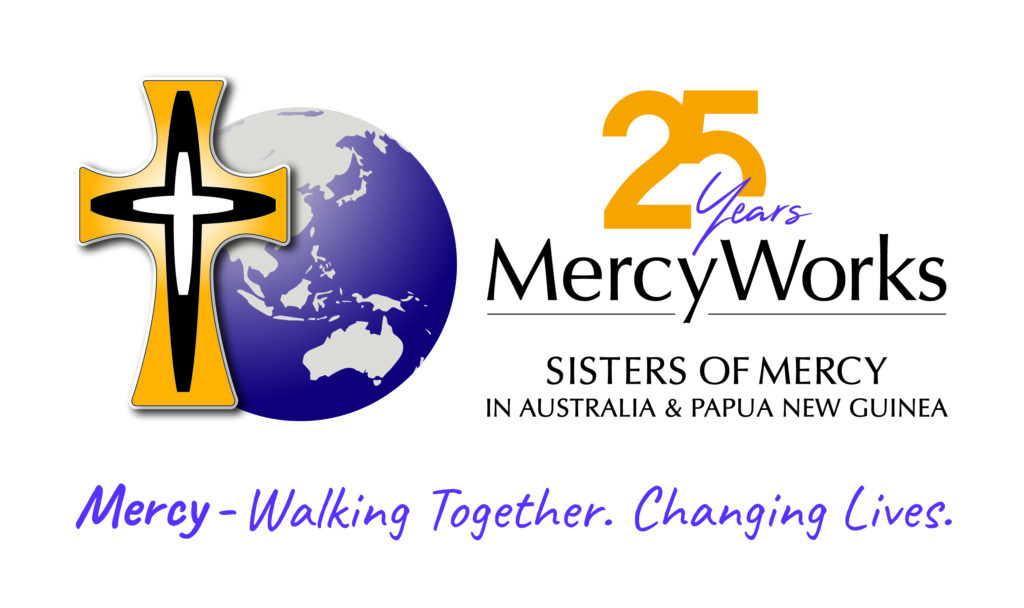
‘The poor need help today, not next week.’
– Catherine McAuley. These words have been the guiding mantra for all who have contributed to Mercy Works since its inception. In 2025, we celebrate 25 years of Mercy in action and reflect on a legacy of service, innovation and dedication.
Since arriving in Australia in 1846, the Sisters of Mercy, alongside others inspired by Catherine McAuley’s vision, have committed themselves to walking with the most marginalised and vulnerable in society. In 1993, a desire to formalise this commitment led to the establishment of Mercy Overseas Aid. Recognising the need for clear principles to guide both national and international ministries, the organisation as we know it today, was renamed Mercy Works Inc. in April 2000.
Ailsa Mackinnon rsm, former Executive Director of Mercy Works recalls ‘In the beginning it was extremely difficult because we were so vulnerable financially but the work being done was magnificent. No government funding meant fundraising needed to have a solid commitment from foundations, private donors and importantly our Mercy schools, to ensure the mission was sustainable.’
By 2003, a Board of Directors was formed, and in 2004, Mercy Refugee Services was fully integrated into Mercy Works. As the number of programs with tax-deductible funding continued to grow, Mercy Works applied for Public Benevolent Institution status, transitioning to a Company Limited by Guarantee in July 2010.
‘We knew that we were making a difference. It was tangible. You could see it in people’s lives.’
– Ailsa Mackinnon
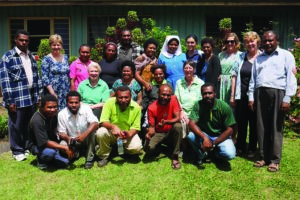
From the onset Mercy Works aimed to evolve earlier works designed to improve social justice and selfreliance through education, health care and welfare programs. These grew to encompass 11 countries from Australia to Kenya, from Pakistan to Papua New Guinea (PNG) and from Peru to Timor-Leste. For Ailsa, ‘Mercy is a verb. It is action.
It is how you put your faith life into action.’ Projects included the installation of water systems in remote villages of Timor-Leste and PNG. Groups were formed to support and empower women, and advance maternal health outcomes, in Pakistan, Kenya and Peru. In Timor-Leste and PNG courses were offered to give women and men the skills required to find work to sustain themselves.
Keen effort was afforded to programs that focussed on elevating educational outcomes for people from a refugee or asylum seeker background in Australia, through the creation of Classroom Connect in 2008 (now called Mercy Works Connect). The mission to create educational opportunities extended to Pakistan with assistance to two schools, and Sudan where in partnership with other NGOs, Mercy Works built a hostel to house young female students attending secondary school. In PNG, hundreds of students benefitted from the Access to Tertiary Education Scholarship program.
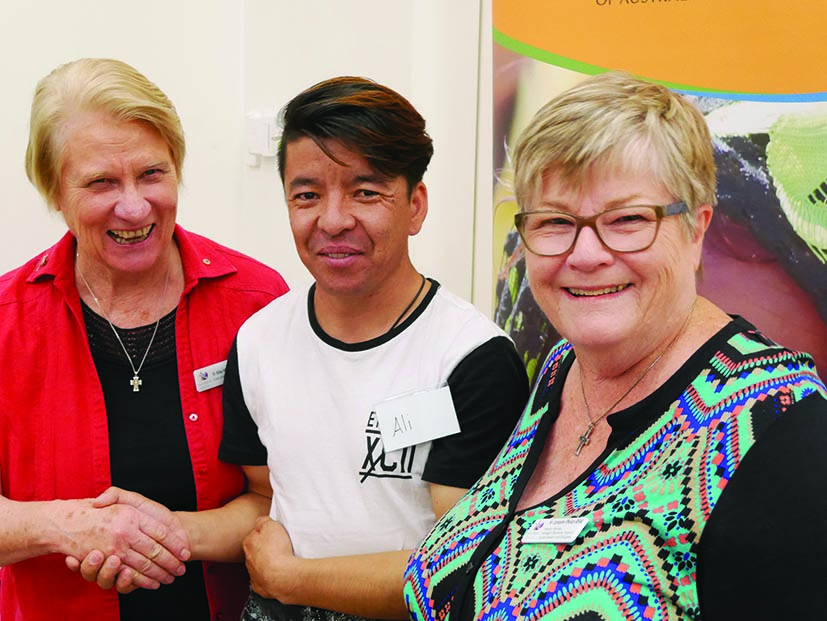
Ailsa believes ‘The turning point for Mercy Works was our partnership with local communities. That grassroots approach allowed us to design programs that truly met the needs of the people we served.
Former Board Chair, Kathleen Donnellon adds ‘For me it was that sense of bringing it back very firmly to mission all the time, making sure that the things that we were funding were in collaboration with the people that we were working with, whoever they might be, that it was really mission based in the sense that it was working towards sustainability for that community or that organisation.’
This is evident in the current work across Australia, PNG, Timor Leste, and the Philippines.
In Australia, Mercy Works partners with organisations like Baabayn Aboriginal Corporation to provide weekly gatherings for Indigenous mothers and children, Jtunga Wattyjara ‘Family Together’ is dedicated to advancing better outcomes for Indigenous women and families, and the Nallei Jerring Youth Leadership Program fosters leadership and self-identity among Aboriginal youth.
Mercy Works Connect supports child and adult students from a refugee or asylum seeker background with mentoring and academic assistance. Mercy Works also supports asylum seekers in Brisbane finding employment through the Romero Centre.
In partnership with the Diocese of Daru-Kiunga in PNG, Mercy Works supports West Papuan refugees and enhances living standards in Simbu Province through financial services, skills training, and crop production.
Mercy Works collaborates with the Hospitaller Sisters of Mercy in Timor Leste, to combat malnutrition in Maucatar, with a focus on pregnant women and children.
The Teresa Orsini Maternity Clinic plays a key role in improving health outcomes in this underserved region.
Alongside the Good Shepherd Home in The Philippines, Mercy Works supports survivors of gender-based violence, offering refugee, rehabilitation, and livelihood opportunities.
As we look to the future, we remain committed to further empowering these communities and building on the sustainable progress that has been made. Mercy Works Board Chair Joe Zabar’s aspiration is ‘I’m hoping that we have tilled the soil well enough so that the next generation coming through will be able to harness some of the gains that we’ve achieved and then springboard Mercy Works to even greater things in the next 25 years.’
Mercy Works began with a vision for a better world, and 25 years later, that vision is stronger than ever. From humble beginnings, the organisation continues to be a force for change. Joe concludes ‘We may have grown but we’re still a small organisation, and nimble, and I don’t think we’ll ever change that because it’s grassroots and it’s sustainable, in the sense that individuals can take control over their own lives. That’s our niche. We might be too small to change the world, but we can change the world for those we support.’
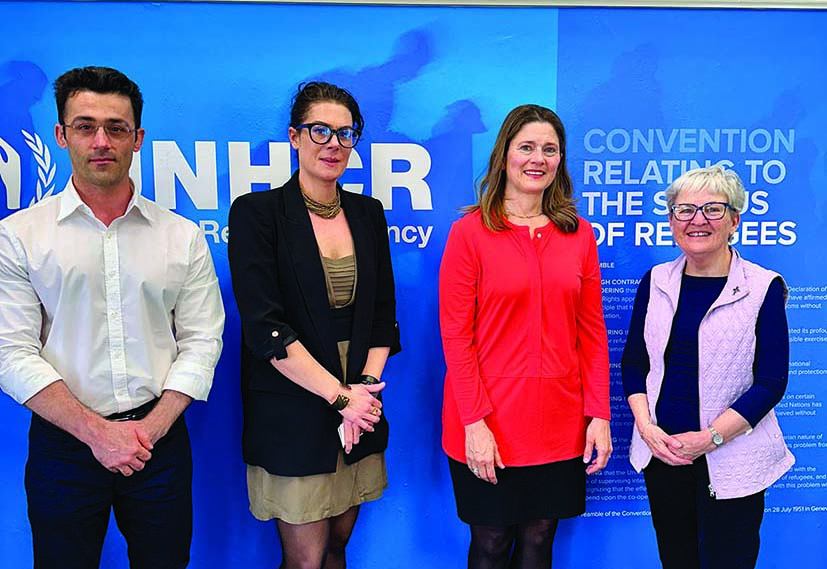
Canberra (2024).
Mercy Works Leaders
Executive Officers
Helen Nolen rsm 2000 – 2003
Maryanne Loughry rsm 2004 – 2005
Rosemary Carroll rsm 2006 – 2011
Executive Directors
Ailsa Mackinnon rsm 2012 – 2018
Sally Bradley rsm 2019 – present
Board Chairs
Patricia Pak Poy rsm 2000 – 2002
Mary Densley rsm 2003 – 2007
Mary Duffy rsm, RIP 2008 – 2011
Berice Livermore rsm 2012 – 2017
Kathleen Donnellon 2018 – 2021
Joe Zabar 2022 – present
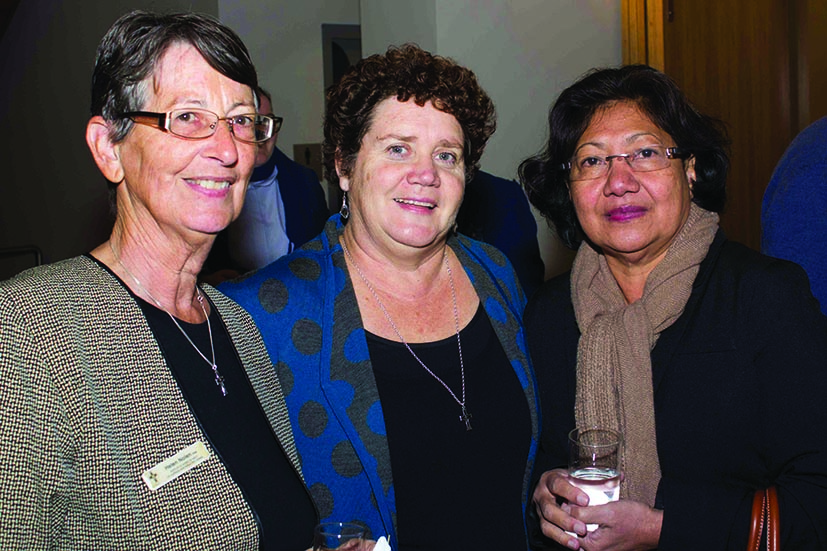
Consul General of Timor-Leste (2015).

 SHOP
SHOP




